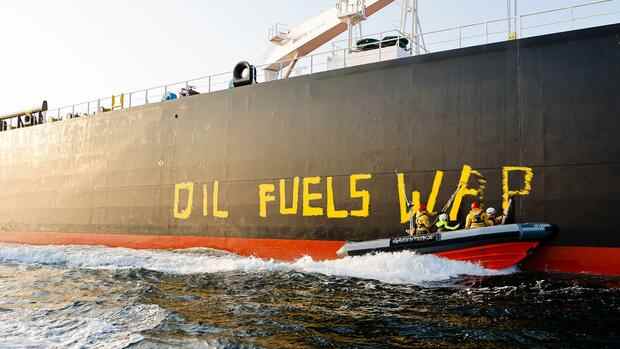Activists paint the words “Oil fuels war” on the hull of a ship transporting Russian oil in the Baltic Sea.
(Photo: dpa)
Brussels, Berlin The European Union wants to boycott Russian oil – but only after a months-long transition period. This is the result of sanctions talks between the EU Commission and the member states and the EU Commission over the weekend, as the Handelsblatt learned from EU diplomats. The federal government had previously given up its opposition to oil sanctions.
The biggest obstacle now are the supply problems in Slovakia and Hungary. Both countries have so far been heavily dependent on Russian oil and have no ports where tankers from other suppliers could unload their cargo.
Europeans are working on a solution, possibly in the form of derogations for Hungary and Slovakia or an extended transition period.
Germany could carry an oil embargo, however, confirmed Federal Minister of Economics Robert Habeck (Greens) on Monday in Berlin after a meeting with associations of medium-sized businesses. “Other countries are not ready yet.”
Top jobs of the day
Find the best jobs now and
be notified by email.
Read the most important questions and answers on the oil sanctions here:
What does the EU want to achieve?
Read on now
Get access to this and every other article in the
Web and in our app free of charge for 4 weeks.
Continue
Read on now
Get access to this and every other article in the
Web and in our app free of charge for 4 weeks.
Continue
